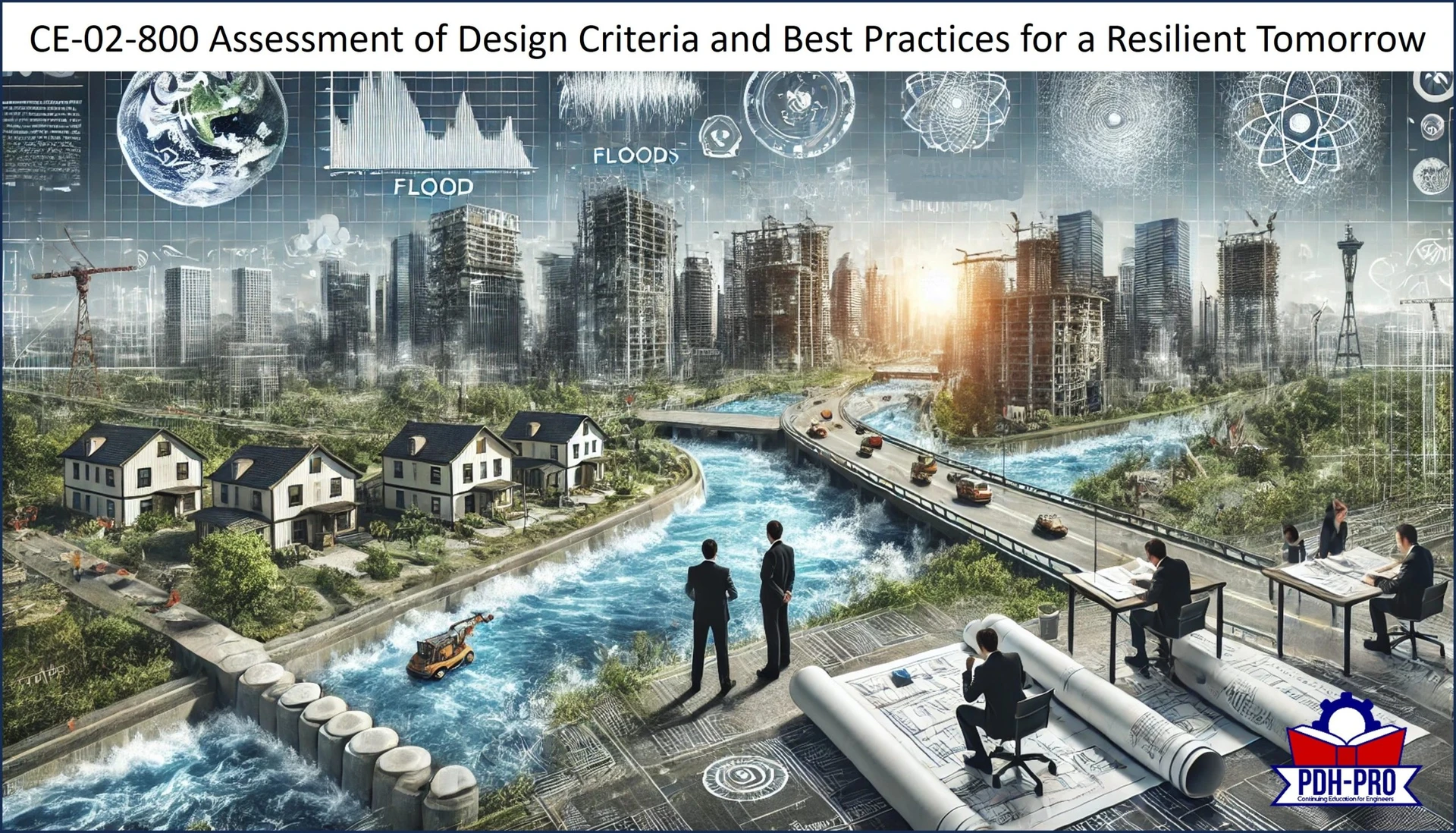
Assessment of Design Criteria and Best Practices for a Resilient Tomorrow
Author: Roman Titov
This course provides a comprehensive exploration of the design criteria and best practices essential for improving community resilience in the face of natural hazards. Drawing from a high-level review of U.S. codes, standards, and reference practices, participants will learn how to evaluate and enhance the performance of buildings and infrastructure systems against flood, wind, and seismic events.
The program emphasizes design hazard characterization, performance expectations, functional recovery, and the role of interdependencies in resilience planning. It also examines the impacts of changing environmental conditions on infrastructure and identifies emerging methods to address these challenges. From buildings and water systems to electrical grids and transportation networks, the course offers insights into creating resilient systems that support sustainable communities.
Learning Objectives
This course is intended to provide you with the following specific knowledge and skills:
- Understand resilience concepts and their role in infrastructure design.
- Recognize critical gaps in current codes and standards.
- Apply resilience-based methodologies to different sectors.
- Evaluate case studies for real-world applications.
- Design infrastructure systems with enhanced functional recovery.
- Address interdependencies in infrastructure systems.
- Integrate community resilience goals into project planning.
- Utilize performance-based design methods for various hazards.
- Plan for climate adaptation in long-term infrastructure design.
- Assess resilience metrics and their community impacts.
- Formulate risk-based design approaches for flood, wind, and seismic hazards.
- Incorporate redundancy and operational continuity into electric systems.
- Implement adaptive designs for water and wastewater systems.
- Develop hazard-specific strategies for transportation systems.
- Engage with policy implications and stakeholder collaboration.
- Leverage emerging tools for resilience analysis.
- Prioritize community goals in infrastructure planning.
- Create actionable designs to improve long-term recovery timelines.
Download the Course to review and begin earning your PDH credits.
Certificate of Completion
Upon passing a 75-question multiple-choice quiz, your certificate of completion will be available for immediate download. PDH credits are awarded once all course requirements, including the quiz, are successfully met.
Board Acceptance
We provide technical courses for PDH credits that meet Board requirements for Professional Engineers, Geologists and Land Surveyors. This course is guaranteed to be accepted for professional engineers in AK, AL, AR, DE, FL, GA, IA, IL, ID, IN, KS, KY, LA, MD, ME, MI, MN, MO, MS, MT, NC, ND, NE, NH, NJ, NM, NV, NY, OH, OK, OR, PA, SC, SD, TN, TX, UT, VA, VT, WI, WV, and WY. Before purchasing this course, please confirm that your state Board is listed above.
